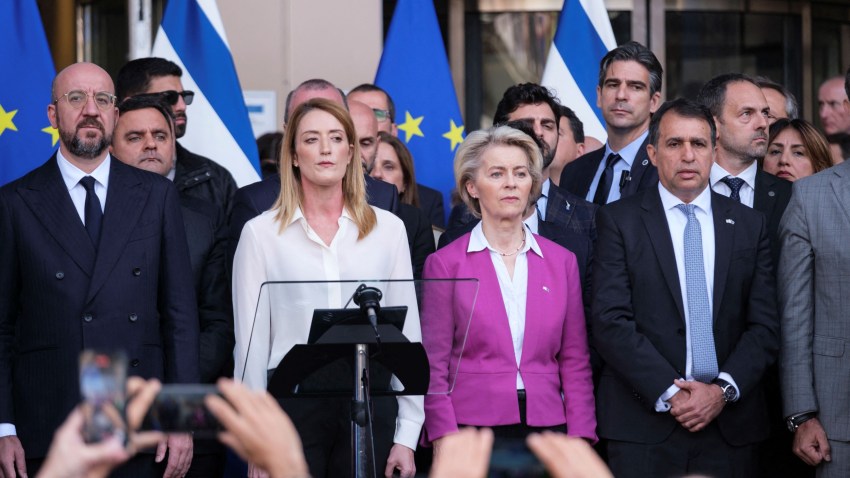More often than not, when faced with an unexpected crisis, European Union leaders instinctively opt to bicker with each other, often hampering the union’s ability to respond to a fast-moving situation. Whether the eurozone crisis in 2012, the COVID-19 pandemic in 2020 or the Israel-Hamas war today, critics have pointed to the disarray caused by this infighting in Brussels as proof that the EU can never become a truly geopolitical actor. Once the EU finds its feet, however, its long-term response to new challenges can prove remarkably resilient in ways that tempt commentators more optimistic about European unity to assert that its geopolitical moment has finally arrived.
After a decade of turmoil around the EU’s neighborhood, there is a lot of evidence that both sides of the debate about its future are right in some ways and wrong in others. Focusing on noisy arguments between specific EU leaders often makes for compelling gossip. But exploring the underlying structural factors that bolster the EU’s power in some contexts while limiting its freedom of action in others is a more useful approach to understanding the EU’s responses to particular geopolitical crises.
As a union that both integrates nation states into a larger supranational entity yet also makes them central to how power in the EU’s institutions are organized and operate, the EU is the closest geopolitics comes to the quantum state famously illustrated by Schrodinger’s cat. The EU’s gradual evolution has led to a more sustainable form of ever-closer union between European nation states than previous imperial projects that attempted to suppress them. But while this emphasis on incrementalism fostered wider support for European integration, it has led to a wide distribution of power across EU institutions that frequently hinders its ability to respond quickly to sudden shocks.

